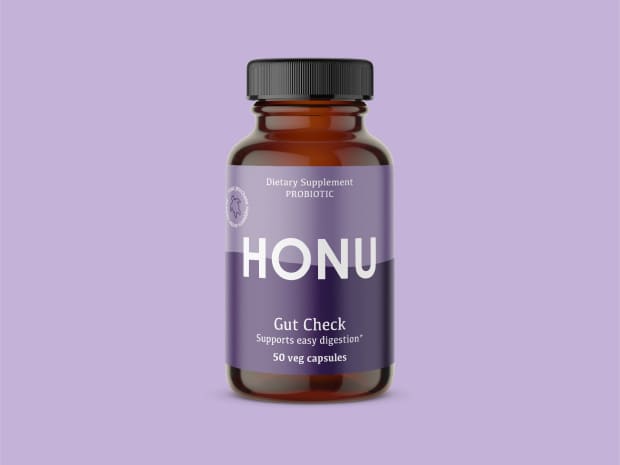Is a UTI a sexually transmitted disease?
Urinary tract infections aren’t considered an STD, and the infection itself isn’t contagious, but the bacteria responsible for causing the infection are able to travel between partners.


Last Updated: August 20, 2021
Got an itch you just can’t scratch? Feel like you need to pee but can’t? We’ve got answers to your burning questions about UTIs to help you find relief ASAP.
Anyone who’s had a urinary tract infection before will tell you it’s no walk in the park. UTIs are painful, inconvenient, and if you noticed it on Friday, you have to live with the discomfort until the doctor’s office opens up on Monday.
Well, in the meantime, we’ve gathered the answers to all your burning questions about UTIs (pun intended) to get you feeling better ASAP.
A urinary tract infection, or UTI, is a bacterial infection that affects any part of the urinary tract system.
The urethra, bladder, kidneys, and ureters (little tubes that send urine from the kidneys to the bladder) are all susceptible to bacterial infection, but most infections enter the urinary tract and stick to the bladder and urethra.
GROVE TIP
When a UTI is in your bladder it’s called a bladder infection, but the terms “UTI” and “bladder infection” are often used interchangeably.
A yeast infection, however, is caused by an overgrowth of the Candida fungus. Symptoms of a yeast infection include itchiness, swelling of the vulva, and a thick, white discharge similar to cottage cheese.
Both infections are super common but are treated very differently. If you suspect something is amiss down there but you’re not sure what, check with your doctor.
They’re caused by bacteria that enter your urethra and wreak havoc through your urinary tract system. The urethra is a tube that transports pee out of the bladder — kind of like an Ancient Roman aqueduct, but in your vulva.
In severe cases, the bacteria travels further through your urinary system and causes a kidney infection.
Many types of bacteria cause UTIs, but the most common culprit is E. coli, which is responsible for nearly 90% of infections. E. coli usually lives its best life in your intestinal tract but occasionally finds its way from your bum to your urethra and causes a bladder infection. Yes, we mean poop.
For folks with vulvas, this journey is a short one, and it’s easy for poop particles to wander up the road and accidentally infiltrate the urinary tract.
Once the bacteria enters your urethra, it starts to multiply and thus, the dreaded UTI is born.
Telltale signs of an infection include:
If you have any of these symptoms accompanied by fever, nausea, lower back pain, or chills, it could be a sign that you have a kidney infection.
Left untreated, kidney infections can damage your kidneys or spread to your bloodstream and cause damage to vital organs. Seek medical treatment immediately if you suspect you have a kidney infection.
Got a penis? You can get a UTI, too. While it’s less likely for people with penises to develop UTIs due to their longer urethras, it’s not impossible.
Symptoms to watch out for if you’re one of the endowed are the same as above with the addition of painful ejaculation.

You don’t have to be sexually active to get a UTI, but the messy glory of sex does help spread unwanted bacteria from one place to another.
Here are a few other FAQs about sex and urinary tract infections.
Urinary tract infections aren’t considered an STD, and the infection itself isn’t contagious, but the bacteria responsible for causing the infection are able to travel between partners.
Yes, but it isn’t recommended, and you probably won’t want to anyway (see: itching, burning, abdominal pain).
Having sex with a UTI pushes the bacteria further into your urinary tract and worsens the infection, so turn off your Hinge notifications and practice some self-care until your infection has been treated.
Spoiler alert: There’s no proven way to treat one from home. Oftentimes the longer you let it go, the more severe it gets.
You can try these at-home remedies to ease your symptoms while you wait for your doctor’s appointment.

The d-mannose in cranberries may help prevent bacteria from sticking to the walls of the urinary tract and causing infection.
Sugar can irritate a UTI that’s in full swing, so choose unsweetened cranberry juice.

Inflammation from UTIs causes pressure and pain around your lower stomach.
Grab a heating pad and lay it over your pelvic area to curb the ache or take a hot bath with some relaxing epsom salts.

Ibuprofen only goes so far to soothe the painful burn of a UTI.
Products like Azo are made to target UTI symptoms for immediate relief, but read the directions before you take them as they’re not meant to be used for longer than two days. Azo turns pee neon orange, so don’t panic when your toilet looks radioactive.
Blessed with a UTI during your period? Check out our tips on natural remedies for PMS.

Wondering who Grove is, what types of products we offer, and how to get a free gift set when you sign up? Learn more about flexible monthly shipments, customizing your shipment, and joining millions of happy households — no monthly fees or commitments required.
Antibiotics are the only proven way to treat UTIs, so you’ll usually need to get some as soon as you’re experiencing the symptoms mentioned above. As soon as you think you have a UTI, make an appointment with your doctor.
Untreated UTIs can turn serious and become life-threatening. Make sure to take all of the medication prescribed, even if you start to feel better halfway through your treatment.
It’s expensive to get a UTI treated at the doctor’s office if you don’t have health insurance, but there are cheaper options for the uninsured.
Planned Parenthood is a non-profit organization with sliding scale fees based on your income. The only downside is that they’re usually booked out weeks in advance, and when you’ve got a UTI, you need fast relief.
Find a Planned Parenthood near you to see what days your clinic has walk-in appointments, then continue home treatments and OTC pain relief until you get in.
One of the many innovations the internet has brought us is the ability to order prescriptions online without a costly doctor’s appointment.
Websites like GoodRx have you fill out a form that’s seen by a provider who reviews your health claim and has antibiotics sent to your local pharmacy for $70 or less.
Walk-in clinics like Urgent Care have nearly 10,000 centers across the US.
Their services are a bit more expensive than Planned Parenthood or an online Rx, but they’re still cheaper than the doctor’s office and most centers are open seven days a week.
Whoever said that prevention is the best medicine knew what they were talking about.
We know it’s tempting to stay in bed while your partner grabs a towel to clean you up, but peeing after sex for people with vaginas and penises really is the best way to prevent UTIs.
Peeing flushes out any sneaky pathogens that weaseled their way in and prevents infection from taking hold — so go to the bathroom, then hop back in bed to enjoy your post-coital glow.
This prevention method is simple but effective. For people with vaginas, start wiping from your vagina and move toward your bum to stop any poo particles from migrating toward your urethra.
Not all bacteria are bad — in fact, your gut and vagina are full of delightful little bacteria that keep you healthy.
Probiotics formulated for vaginal health help prevent UTIs by increasing the “good” bacteria and preventing the “bad” guys from taking over.
Bonus: Probiotics are also a great way to keep yeast infections at bay.
Drink at least 2 liters of water a day — or more, depending on your weight. Water helps flush out those gnarly pathogens to keep you UTI-free.
Reusable water bottles make it easy to #stayhydrated.
Spermicides and diaphragms kill the healthy vaginal flora, which gives the bad bacteria plenty of room to multiply and cause an infection.
Condoms can reduce the risk of UTIs — learn more about how to choose the right condoms for you in our handy dandy condom guide.
This is especially true if you’re prone to recurrent UTIs.
Ditch the skinny jeans and nylon underwear and opt instead for mom jeans and a drawer full of cotton skivvies — this is especially important for people with vaginas. It will thank you.
We’ve got a couple more answers to some commonly asked questions about UTIs.
There’s no evidence that stress is directly responsible for causing a UTI, but stress can weaken your immune system and make you more likely to develop one.
Most UTIs are treatable with a 3 to 7 day course of antibiotics.
Complicated UTIs, like those in the upper urinary tract, usually clear up after a 10 to 14 day treatment.
A UTI that spreads to your bloodstream is potentially life-threatening. See your doctor if you experience UTI symptoms.
Cats and dogs can get UTIs, too. Your pet’s UTI is also treatable with antibiotics.

These environmentally friendly and cost-effective feminine care items might just be your next sustainable swap.

Got tummy troubles? We've pulled the top 15 probiotics for you to try as determined by Grove members. Select from any on the list and get them delivered to your door.

Got a case of PMS? Fear not! Premenstrual syndrome is a bummer, but we’ve got hot tips to keep you cool-headed and cramp-free while your body sorts itself out.

We’re talking about a big part of sexual wellness here: natural lubricants. Have a read on which lubes work best in different situations and how to use them correctly!